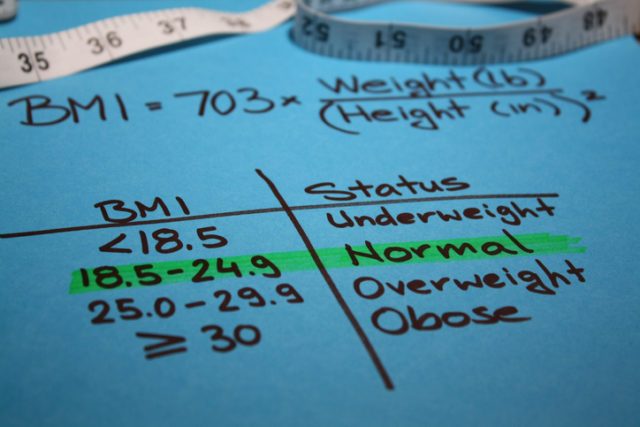Body Mass Index Calculation Your body mass index (BMI) refers to the amount of fat on your body. In general, the higher your BMI is, the more fat you have. Doctors often use BMI as a way to determine the kinds of health risks individuals face based on this number.
What Does BMI Measure?
BMI measures the amount of fat on your body and compares this to your height. You can get this number by dividing your weight over your height squared. Taller individuals can typically weigh more than shorter individuals while still having a normal or healthy BMI. For example, a person who is 5 feet 2 inches tall would be considered overweight at 145 pounds and obese starting at around 165 pounds.


